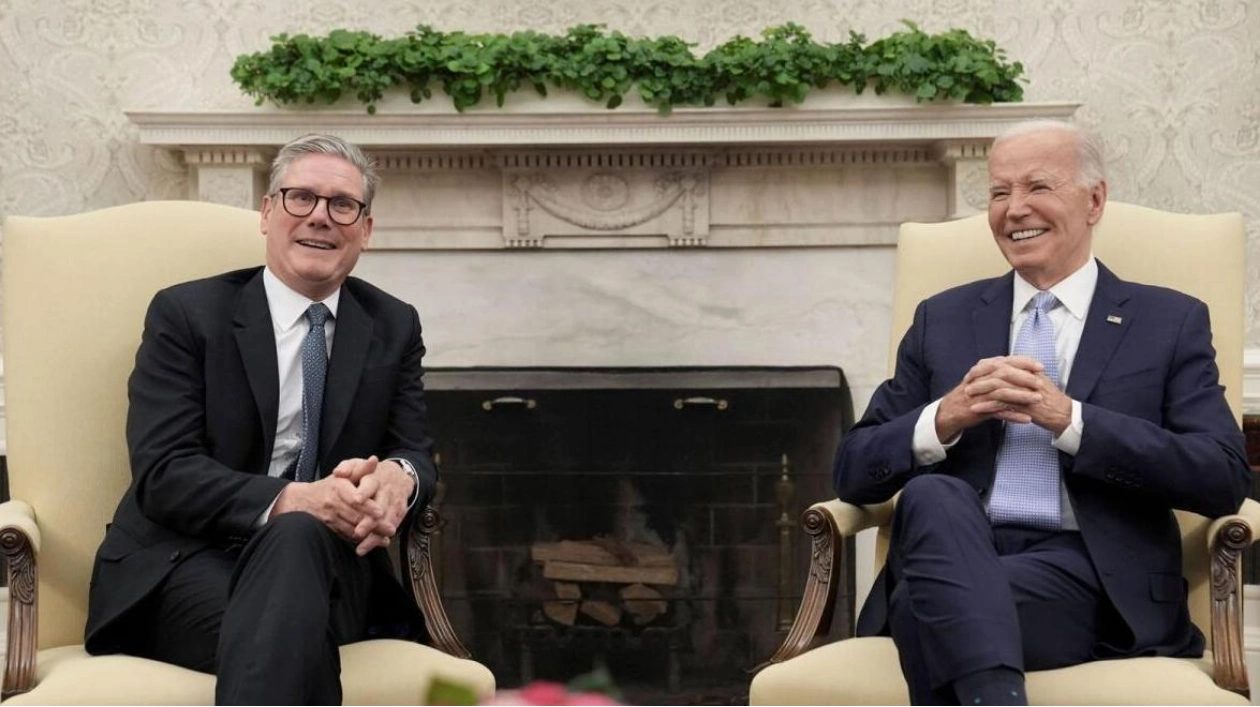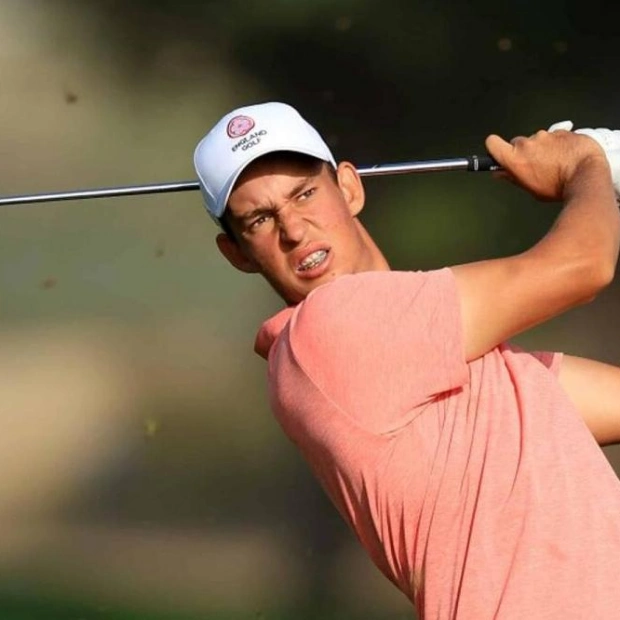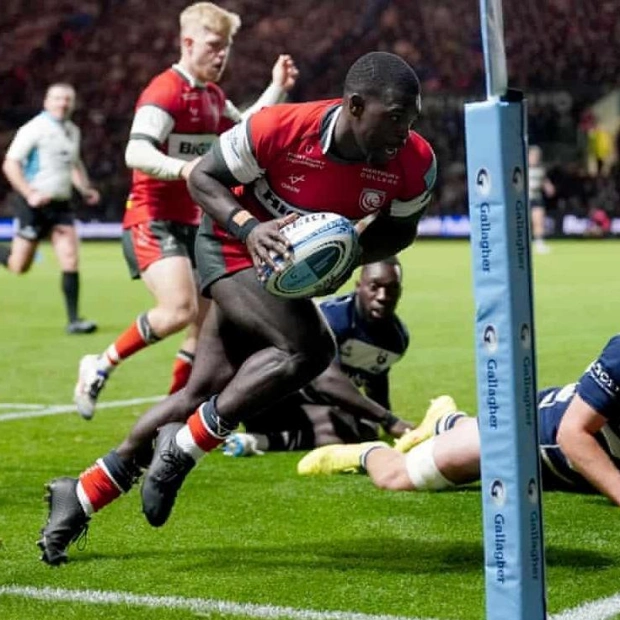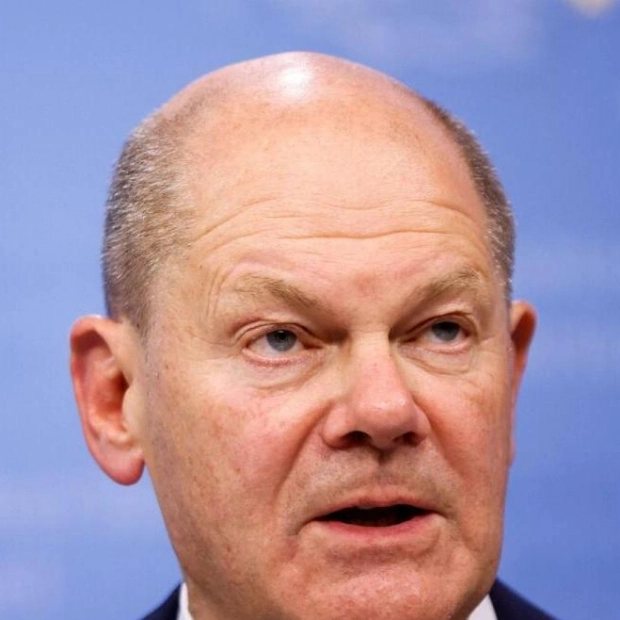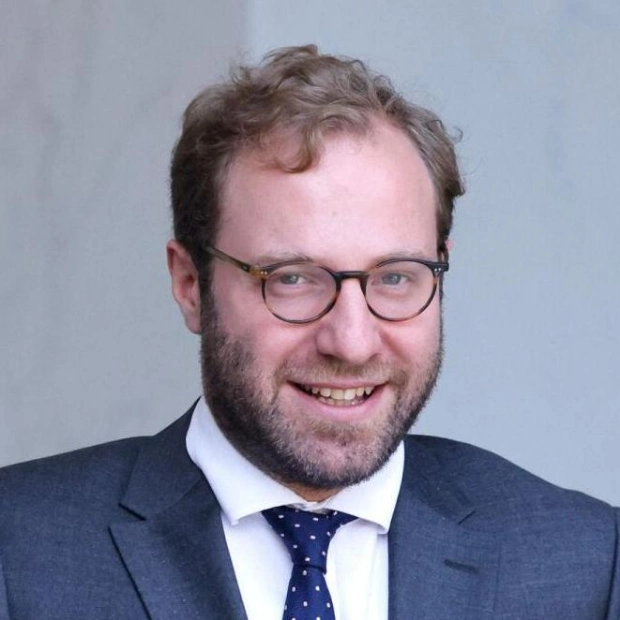New Prime Minister Keir Starmer held his inaugural meeting with President Joe Biden at the White House on Wednesday, with the US leader praising Britain as a crucial partner on international matters, including the conflict in Ukraine. "We are the best of allies in the entire world," Biden, 81, stated as he greeted the similarly center-left Starmer in the Oval Office. Biden further described Britain as the "tie that binds the transatlantic alliance." Starmer, 61, who had just won elections and was attending his first NATO summit in Washington, emphasized the significance of this special relationship, noting it is "stronger than ever." The two leaders shared a light moment discussing the English football team's victory in the Euro 2024 semi-finals, attributing it to the prime minister's influence. However, they avoided discussing Biden's precarious re-election prospects following a poor debate performance against Donald Trump.
Concerns about Biden's health have sparked worries among allies regarding a potential second term for Trump, who has criticized NATO and suggested a swift agreement with Russia over Ukraine. In Washington, Starmer pledged continued British support for Kyiv and endorsed the use of British missiles in strikes inside Russia. Just days after his Labour Party's electoral victory, Starmer had a "very good" meeting with Ukrainian President Volodymyr Zelensky at NATO's 75th anniversary summit, assuring that the UK's support for Ukraine remains unchanged despite the government transition. On his way to Washington, Starmer clarified that British-supplied Storm Shadow missiles are intended for defensive purposes, leaving the decision on their deployment to Ukraine.
In his address to NATO leaders, Starmer committed to standing by Ukraine "for as long as it takes" and renewed the UK's pledge of £3 billion ($3.9 billion) annually in military aid until 2030-31. Britain is also set to provide a new package of artillery and 90 Brimstone missiles in the coming weeks and contribute to a substantial NATO assistance package for Kyiv. Historically, under three Conservative prime ministers, Britain has been a steadfast supporter of Ukraine, advocating for advanced military systems and fewer restrictions for Kyiv. Biden, while supporting Ukraine, has been cautious to avoid direct conflict with Russia, recently allowing Ukraine to strike Russian positions near the border using US weapons. Zelensky expressed gratitude for the continued support, while Kremlin spokesman Dmitry Peskov warned of Russia's potential response to Starmer's decision.
Starmer also discussed with other Western leaders, including French President Emmanuel Macron, at the NATO summit, hoping to convey to Russian President Vladimir Putin that the alliance is stronger and more united than ever, fully aware of the threat posed by Russian aggression. In 2014, a NATO summit in Britain established a goal for each ally to contribute at least 2% of GDP to defense, a longstanding US demand. Initially, only the US, Britain, and Greece met this target, but the number has risen to 23 out of 32 members following the attack on Ukraine. Britain's new defense secretary, John Healey, suggested that NATO consider a 2.5% goal, noting that all NATO nations may need to contribute more than 2% given the increasing global threats.
